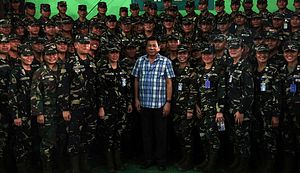Last week, Turkey and the Philippines finalized a new agreement on defense cooperation. Though the development is just one of several in the ties between the two countries, it has once again put the spotlight on the developing defense relationship between amid Manila’s ongoing efforts to boost its limited military capabilities and increasing Turkish interest in Asian markets.
As I have observed previously in these pages, over the past few years, Turkey and the Philippines have been looking to develop ties in the defense realm due to convergent interests, with Ankara looking for newer Asian markets amid a challenging business environment in some Middle Eastern countries, and Manila searching for a longer list of partners as it develops its defense capabilities. As that has occurred, we have seen ties develop not only in components such as visits and port calls, but also transfers of defense equipment as well.
The Philippines recently identified the Turkish Aerospace Industries (TAI) T129 ATAK multirole combat helicopters as among the options it is looking at to fill needs in that area, which had been in the headlines after the nixing of an earlier deal where Manila was supposed to buy them from Canada.
This week, the relationship was in the headlines again with the inking of a defense deal between the two sides. The Philippine Department of National Defense (DND) and the Turkish Presidency of Defense Industries (SSB) signed the agreement on December 18, and news of the inking was subsequently publicized.
The memorandum of understanding on defense cooperation was signed by DND Secretary Delfin Lorenzana and SSB President Ismail Demir at the Philippine Air Force headquarters in Villamor Air Base in Pasay City. According to DND spokesman Arsenio Andolong, the MOU focused on areas such as government-to-government acquisition and the development, co-production, and transfer of defense technology between the DND and the SSB.
Unsurprisingly, few additional details were disclosed about the new agreement beyond those general areas of focus which both sides have already been delving into. It also remains to be seen how its conclusion will affect the tangible collaboration that the two sides will embark on in the coming months and years, down to specific acquisitions, projects, and ventures. Nonetheless, given the traction we have seen the relationship getting in the past few years and the wider implications that it could have as it develops over time, the trajectory of the defense aspect of ties will continue to be interesting to watch in the future.































